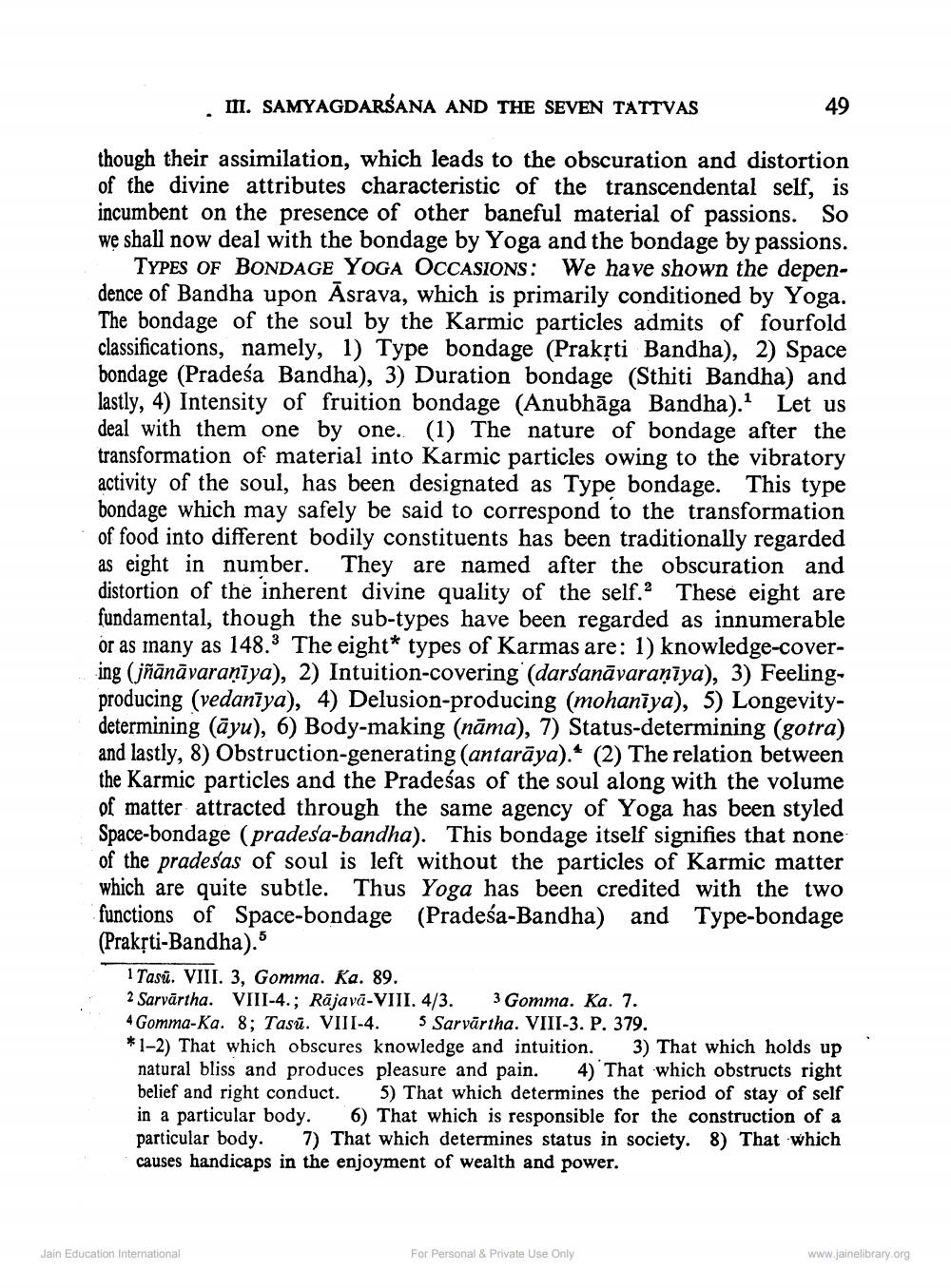________________
. M. SAMYAGDARŠANA AND THE SEVEN TATTVAS
49
though their assimilation, which leads to the obscuration and distortion of the divine attributes characteristic of the transcendental self, is incumbent on the presence of other baneful material of passions. So we shall now deal with the bondage by Yoga and the bondage by passions.
TYPES OF BONDAGE YOGA OCCASIONS: We have shown the dependence of Bandha upon Āsrava, which is primarily conditioned by Yoga. The bondage of the soul by the Karmic particles admits of fourfold classifications, namely, 1) Type bondage (Prakrti Bandha), 2) Space bondage (Pradeśa Bandha), 3) Duration bondage (Sthiti Bandha) and lastly, 4) Intensity of fruition bondage (Anubhāga Bandha). Let us deal with them one by one.. (1) The nature of bondage after the transformation of material into Karmic particles owing to the vibratory activity of the soul, has been designated as Type bondage. This type bondage which may safely be said to correspond to the transformation of food into different bodily constituents has been traditionally regarded as eight in number. They are named after the obscuration and distortion of the inherent divine quality of the self. These eight are fundamental, though the sub-types have been regarded as innumerable or as inany as 148. The eight* types of Karmas are: 1) knowledge-covering (jñānāvaraṇīya), 2) Intuition-covering (darsanāvaraṇīya), 3) Feelingproducing (vedaniya), 4) Delusion-producing (mohanīya), 5) Longevitydetermining (āyu), 6) Body-making (nāma), 7) Status-determining (gotra) and lastly, 8) Obstruction-generating (antarāya).* (2) The relation between the Karmic particles and the Pradeśas of the soul along with the volume of matter attracted through the same agency of Yoga has been styled Space-bondage (pradesa-bandha). This bondage itself signifies that none of the pradesas of soul is left without the particles of Karmic matter which are quite subtle. Thus Yoga has been credited with the two functions of Space-bondage (Pradeśa-Bandha) and Type-bondage (Praksti-Bandha).
1 Tasū. VIII. 3, Gomma. Ka. 89. 2 Sarvārtha. VIII-4.; Rājavā-VIII. 4/3. 3 Gomma. Ka. 7. 4 Gomma-Ka. 8; Tasū. VIII-4. 5 Sarvārtha. VIII-3. P. 379. *1-2) That which obscures knowledge and intuition. 3) That which holds up natural bliss and produces pleasure and pain. 4) That which obstructs right belief and right conduct. 5) That which determines the period of stay of self in a particular body. 6) That which is responsible for the construction of a particular body. 7) That which determines status in society. 8) That which causes handicaps in the enjoyment of wealth and power.
Jain Education International
For Personal & Private Use Only
www.jainelibrary.org




